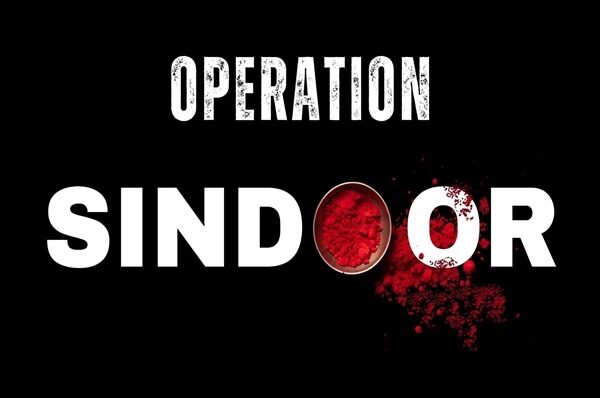Operation Sindoor: India’s Decisive Strike Against Terror
On May 7, 2025, India launched a bold and meticulously planned military operation codenamed “Operation Sindoor,” targeting terrorist infrastructure in Pakistan and Pakistan-occupied Jammu and Kashmir (PoJK). This operation, executed in the early hours, was a direct response to the horrific Pahalgam terror attack on April 22, 2025, which claimed 26 lives, including 25 Indian citizens and one Nepali national. The strike, characterized by precision and restraint, underscored India’s resolve to combat terrorism while avoiding escalation with its nuclear-armed neighbor.
The Context: Pahalgam’s Tragedy
The Pahalgam attack, one of the deadliest in nearly two decades, targeted civilians, primarily tourists, in the scenic Baisaran area of Jammu and Kashmir. The Resistance Front, a proxy group linked to Lashkar-e-Taiba (LeT), claimed responsibility, with Indian authorities establishing clear connections to Pakistan-based terror networks. The brutality of the attack, aimed at disrupting Jammu and Kashmir’s burgeoning tourism and stoking communal discord, galvanized public and political demand for a robust response. Prime Minister Narendra Modi, who had vowed stern action, personally monitored the operation throughout the night, reflecting the government’s commitment to justice.
Operation Sindoor: A Surgical Response
Operation Sindoor was a 25-minute blitz involving 24 precision missile and drone strikes across nine terror camps in Pakistan and PoJK. The targets, carefully selected based on intelligence inputs, included strongholds of Jaish-e-Mohammed (JeM) in Bahawalpur, LeT bases in Muridke, and other facilities in Kotli, Muzaffarabad, and Sialkot. The operation was a tri-service effort, with the Indian Army, Navy, and Air Force deploying advanced weaponry, including loitering munitions, all launched from Indian soil to minimize risks to personnel and aircraft.
The strikes were devastatingly effective, eliminating approximately 70 terrorists and injuring 60 others, according to Indian sources. Notably, the operation claimed the lives of key figures, including a close associate of JeM chief Maulana Masood Azhar, his mother, and several family members, dealing a significant blow to the terror outfit’s leadership. Visuals released by the Indian military showed camps like the Subhan Allah facility reduced to rubble, underscoring the operation’s success.
India’s approach was deliberately non-escalatory. No Pakistani military or civilian infrastructure was targeted, and the government emphasized that the strikes were a measured response to the Pahalgam massacre. Foreign Secretary Vikram Misri, addressing a media briefing alongside Colonel Sofiya Qureshi and Wing Commander Vyomika Singh, clarified that the operation aimed to dismantle terror networks, not provoke a broader conflict. The symbolic name “Sindoor,” referring to the vermilion powder signifying marriage in Hindu tradition, was a nod to the cultural resonance of the operation, particularly for victims like Sangita Ganbote, who lost her husband in the Pahalgam attack and praised the strikes as a tribute to Indian women.
Regional and Global Reactions
Pakistan’s response was swift but complex. Prime Minister Shehbaz Sharif labeled the strikes an “act of war,” and Pakistan resorted to heavy artillery shelling along the Line of Control (LoC), resulting in the deaths of 15 Indians, including civilians, and injuries to 43 others. However, Pakistan’s Defence Minister Khawaja Asif later softened his rhetoric, signaling openness to dialogue if India de-escalated, a shift possibly influenced by Pakistan’s fragile $350 billion economy and its reliance on a $7 billion IMF loan program.
Internationally, reactions varied. The United States, through President Donald Trump and Secretary of State Marco Rubio, expressed hope for a quick resolution while closely monitoring the situation. The United Kingdom’s Rishi Sunak supported India’s right to counter terrorism, emphasizing that no nation should tolerate attacks from another’s territory. India briefed 13 UN Security Council members, excluding Pakistan, on the operation’s objectives, reinforcing its narrative of self-defense. However, Azerbaijan condemned the strikes, citing civilian casualties, though India denied targeting non-combatants.
Domestic Impact and Security Measures
Operation Sindoor triggered significant domestic repercussions. Air traffic was disrupted across northern and western India, with 18 airports, including Srinagar, Jammu, and Amritsar, shut down and over 200 flights canceled until May 10. Airlines like Air India and IndiGo offered refunds and rescheduling waivers to affected passengers. Several districts conducted mock drills to enhance preparedness, and the National Investigation Agency (NIA) sought public assistance to identify perpetrators of the Pahalgam attack.
Politically, the operation garnered broad support. An all-party meeting was scheduled for May 8, with Congress leaders Mallikarjun Kharge and Rahul Gandhi confirming attendance. Regional leaders, including Uttarakhand Chief Minister Pushkar Singh Dhami and Union Minister Sukanta Majumdar, hailed the operation as a testament to India’s military prowess and Modi’s leadership. Even opposition figures like AIMIM chief Asaduddin Owaisi, while visiting Srinagar, condemned the Pahalgam attack, aligning with the national sentiment.
The Road Ahead
Operation Sindoor has reaffirmed India’s zero-tolerance policy toward terrorism, but it also highlights the delicate balance in India-Pakistan relations. The operation’s success in neutralizing terror infrastructure is undeniable, yet Pakistan’s retaliatory shelling and the potential for further escalation underscore the region’s volatility. India’s National Security Advisor, Ajit Doval, signaled readiness to retaliate if Pakistan escalates, but the government’s diplomatic outreach to global powers suggests a preference for de-escalation through dialogue.
As tensions simmer, Operation Sindoor stands as a powerful statement of India’s sovereignty and resolve. The operation not only avenged the Pahalgam victims but also sent a clear message to terror networks and their sponsors: India will strike decisively when provoked. For now, the nation watches closely, hoping for peace but prepared for any eventuality


